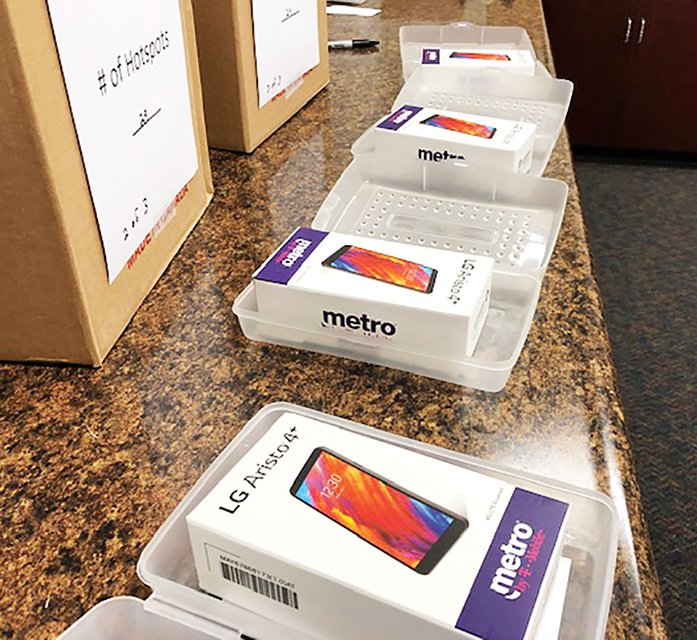Schools distribute Wi-Fi hotspots to needy families in Chula Vista
June 29, 2020
As school districts rolled out laptops to students across the region, a simple truth emerged in distance learning. The device is only as good as its internet connectivity. Wi-Fi/broadband access is crucial to online learning. However, the cost can be more than some families can afford. To address that challenge, CVESD partnered with the City of Chula Vista to expand broadband access for students.
In May, Wi-Fi hotspots were distributed to foster youth, homeless youth, special education students and other CVESD families who might not otherwise afford broadband access.
“As we all know, the global pandemic has placed an incredible strain on local communities,” said Armando Farías, President of CVESD’s Board of Education. “As a former teacher and school principal, I can tell you that nowhere has the impact been felt more deeply than in our local schools. When campuses were closed in mid-March, we had to pivot overnight to distance learning. Public education might be forever changed. One of the lesser known challenges of distance learning has been the importance of high level Wi-Fi/broadband access.”
The Chula Vista City Council voted unanimously to an agreement with T-Mobile and potentially other telecommunication providers to purchase 2,000 Wi-Fi hotspots. Funding totaling $650,000 is being paid for by the city’s Public, Educational, Governmental funding, not its general fund. CVESD is paying the $20,000 monthly service costs. The partner agencies held a joint press conference on May 21 at Harborside Elementary to highlight their work together.
“As a former teacher and school principal, I can tell you that nowhere has the impact been felt more deeply than in our local schools.”
—Armando Farías, President of CVESD’s Board of Education
“We know many families rely on our libraries and community centers for Internet access,” Mayor Mary Casillas Salas said. “But since we’ve closed our libraries to the public — some families have been challenged to keep up with their children’s schooling.
“Even before this crisis, we knew there were digital inequalities in our community. In May 2019, the city began a multi-phase project to develop a Digital Equity and Inclusion Plan with a set of strategies aimed at improving digital equity with access to internet connectivity in the home and access to functioning devices for students to complete course work. This plan helped lay the groundwork for this important day.”
CVESD had prepped and distributed nearly 6,700 laptop computers to its neediest families. However, not all parents had internet connectivity. Officials at the District and city have a history of successful collaboration. They moved to implement the hotspot solution. And community organizations stepped forward to assist as well. City officials especially thanked EastLake Church for sponsoring broadband service for 125 students. More organizations also have expressed willingness to assist families with online learning or other needs — support that is deeply appreciated by school officials.
“Extraordinary times call for extraordinary measures,” Farías said. “That’s what we have accomplished in Chula Vista. We put together an extraordinary partnership that will only grow as we expand distance learning in some form or other to our new school year.”
CVESD announced a “Distance Learning & Educational Resources Drive” at the Wi-Fi rollout event. The online giving campaign was made possible with the assistance of EastLake Educational Foundation. The campaign is intended to secure additional laptops, Wi-Fi hotspots, and other needed educational resources for students and teachers in this unprecedented time.

In May, Wi-Fi hotspots were distributed to foster youth, homeless youth, special education students and other CVESD families who might not otherwise afford broadband access.


